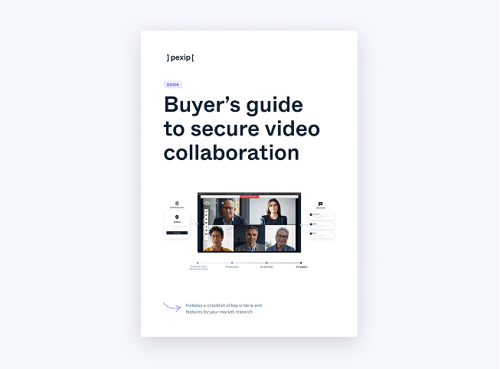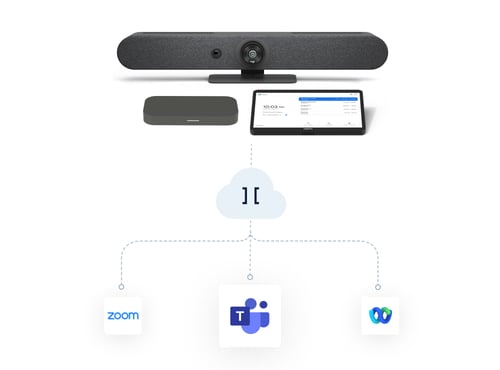Why Personally Identifiable Information (PII) must be safeguarded in video calling solutions
The protection of personally identifiable information (PII) has become a top priority (and often a regulatory requirement) for many organizations, especially in environments where data is shared and stored electronically, such as in video calling platforms. As businesses and government agencies increasingly rely on virtual meetings, it's important to understand what constitutes PII, the potential risks associated with its exposure, and how to protect it.
In this blog, we share some examples of PII in the context of video calling applications, explain why PII protection is vital and which industries are most affected, plus we look at what type of information can be inferred from PII and associated metadata.
What is PII?
PII is any information that can be used on its own or with other information to identify, contact, or locate a single person, or to identify an individual in context. In the realm of video conferencing, PII can include:
- Names and contact information: Full names, email addresses, phone numbers, personal identity numbers, passport numbers, drivers license numbers, and home addresses.
- Images and video: Live video feeds can reveal identity through appearance or even background elements that show home interiors or potentially sensitive surroundings.
- Employment Information: Job titles, work emails, or any details that might suggest an individual’s role within a company.
- Location data: Information that could be deduced from IP addresses or any location services enabled during the conference.
Importance of protecting PII
Protecting PII is no longer a ‘nice to do’ option. In many organizations, it has become a requirement for the following reasons:
- Privacy: Individuals have a right to privacy, and safeguarding personal information is a key part of respecting this right.
- Security: Exposure of PII can lead to identity theft, financial fraud, and other forms of personal harm.
- Compliance: Many industries are governed by regulations that mandate the protection of personal information, such as HIPAA in healthcare, FERPA in education, or GDPR in the EU.
Industries most concerned with PII
Certain sectors are particularly sensitive to the exposure of PII, given the nature of their business. Here are some of the sectors that need to have a robust approach to protecting PII in all their digital interactions.
- Healthcare: Medical professionals use video calling applications for consultations where they discuss sensitive health information that must remain confidential.
- Education: Teachers are often in possession of personal information of children, which needs protection from unauthorized access.
- Finance: Financial advisors discuss account details or transactions, which requires strict confidentiality to protect client data.
- Legal: Attorneys may share sensitive client information during virtual meetings that require high levels of confidentiality and integrity.
Inferences from PII and metadata
The implications of exposed PII extend beyond the immediate misuse of the data. Metadata in video calling applications, which includes call logs, duration, and participant details, can reveal patterns and sensitive information. Here are some examples of what can be gleaned from the metadata:
- Behavioral insights: Frequent meetings between certain individuals might suggest professional relationships or ongoing projects.
- Organizational information: Details such as meeting times and participant roles can expose operational aspects of a company, potentially revealing business strategies.
- Geographical patterns: Location data can indicate where participants are based, which might be sensitive for reasons ranging from personal security to strategic business information.
Protecting individual’s privacy at every virtual interaction
In video calling platforms, where data flows freely and can be easily recorded, the need to actively manage and protect PII is more critical than ever. Implementing robust security measures, such as end-to-end encryption, secure storage solutions, and strict access controls, can mitigate risks. As industries continue to evolve with technological advancements, the focus on PII protection must also adapt, ensuring that individuals' data and privacy are preserved in every virtual interaction.
Reach out to us at Pexip to learn more about our secure video calling SDK solutions and how protecting PII is at the core of what we do.





